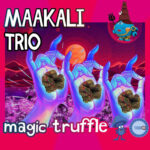A Long Fought Battle
Despite the successful outcome, it was indeed a long fought battle. It would be over 100 days before the four patients’ request was finally granted in Canadian Parliament. Initially campaigners had proposed a blanket request for all terminally ill patients to have access to psilocybin therapy as part of their palliative care. Unfortunately, this request was denied by the government, so the campaigners chose to focus instead on individual cases.
‘Standing Up For Patients Rights’
This proved to be a more effective tactic. On August 4th it was announced by TheraPsil, a company who provides end-of-life psilocybin treatment, that the request had been granted by the Health Ministry. After the verdict, Dr Bruce Tobin, founder of TheraPsil, has this to say;
“Although it has taken a long time we are impressed with their (the government’s) willingness to listen to patients who have not been heard and to shift focus and policy to accommodate their interests and protect their needs. We also thank the brave Canadian patients who have been public in their fight for psilocybin access, along with the honourable Canadian MPs who have demonstrated courage, standing up for patient rights…”
Not Just A Triumph
For the four patients in question, the ruling was not just a triumph but an overwhelming relief. Laurie Brooks, one of the patients granted exemption from the law stated;
“I hope this is just the beginning and that soon all Canadians will be able to access psilocybin, for therapeutic use, to help with the pain they are experiencing, without having to petition the government for months to gain permission.”
Comparisons With Cannabis
Brook’s hope is a foreshadowing of how things could soon progress. Cannabis was initially granted legal use on compassionate grounds in the USA, and very soon became decriminalised in many states. Most recently the state of Illinois legalised recreational use of cannabis. Many people predict that psilocybin is on a similar track, as their parallels are numerous. Excitingly, psilocybin’s potential therapeutic benefits at least equal that of cannabis.
Traditional Medicines Do Not Address The Issue
What is so unique, and therefore essential, about psilocybin treatment is that it addresses end-of-life anxiety. Although a very common result of a terminal diagnosis, traditional medicines do not usually address this issue. When treated with traditional antidepressants the patient is not encouraged to confront their anxieties. Rather, they numb what could be their last months and years.
This is the reason that the four patients granted psilocybin use initially turned to it as an alternative. Patient Thomas Hartle explains:
(end-of-life anxiety) “…gives you a rapid heart rate. It makes you feel terrible”
Studies Show Success
The patients were encouraged by the recent studies into psilocybin in relation to palliative care. In a recent study at NYU, named the Psilocybin Cancer Anxiety Project, 29 patients received psilocybin in a therapeutic setting. The findings of the study showed both immediate and longer-term effects. The immediate findings were that the patients levels of depression and anxiety were greatly reduced. Even more remarkably 80% of the participants exhibited sustained benefits nearly 7 months later. Additionally, up to 70% of the patients ranked the experience as the single most, or at least in the top five, meaningful experiences of their lives. Finally, almost 90% self reported it had improved their life satisfaction.
Trancending Fear
Anthony Bossis, a clinical psychologist and professor at NYU School of Medicine, was director of palliative care, co-principal investigator and ‘session guide’ for the study. He is emphatic on the effectiveness of the treatment, especially at a time when end-of-life care is often meagre. He states, “We don’t die well in America and it’s really kind of the final taboo.” The psilocybin treatment gives patients the opportunity to confront and accept their circumstances, transcending fear.
“The things that we hear from the participants are kind of the eternal truths. We hear about the importance of forgiveness, people’s experiences of love, love and kindness towards others…It’s not about the drug per se, in the end, but this change in consciousness that allows, for a few hours, these incredible experiences and insights to be gleaned, and that’s what changes them.”
Professor Bossis
Many other studies are following in the steps of Professor Bossis et al’s. In January 2020 a study from NYU Langone Health found that just one dose of psilocybin provided long-term relief of depression and anxiety in cancer patients. There are currently a host of similar studies in progress across the globe.
A Landmark Step…
With this first landmark step, it is only a matter of time before more campaigns, ballots and votes are successful in favour of legalising psilocybin for medical care. Thomas Hartle, of the four patients, stated;
“This is the positive result that is possible when good people show genuine compassion. I’m so grateful that I can move forward with the next step of healing,”





